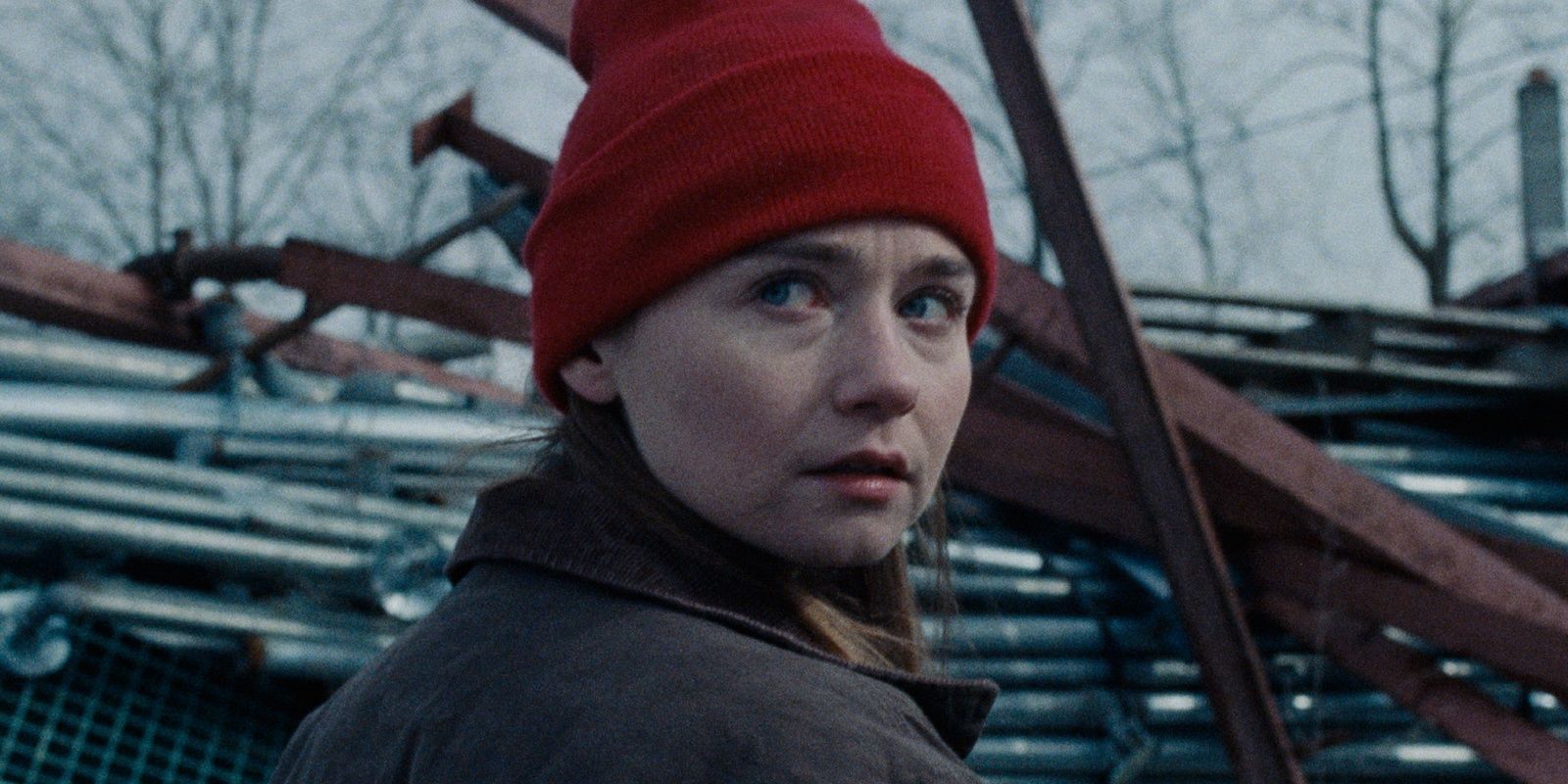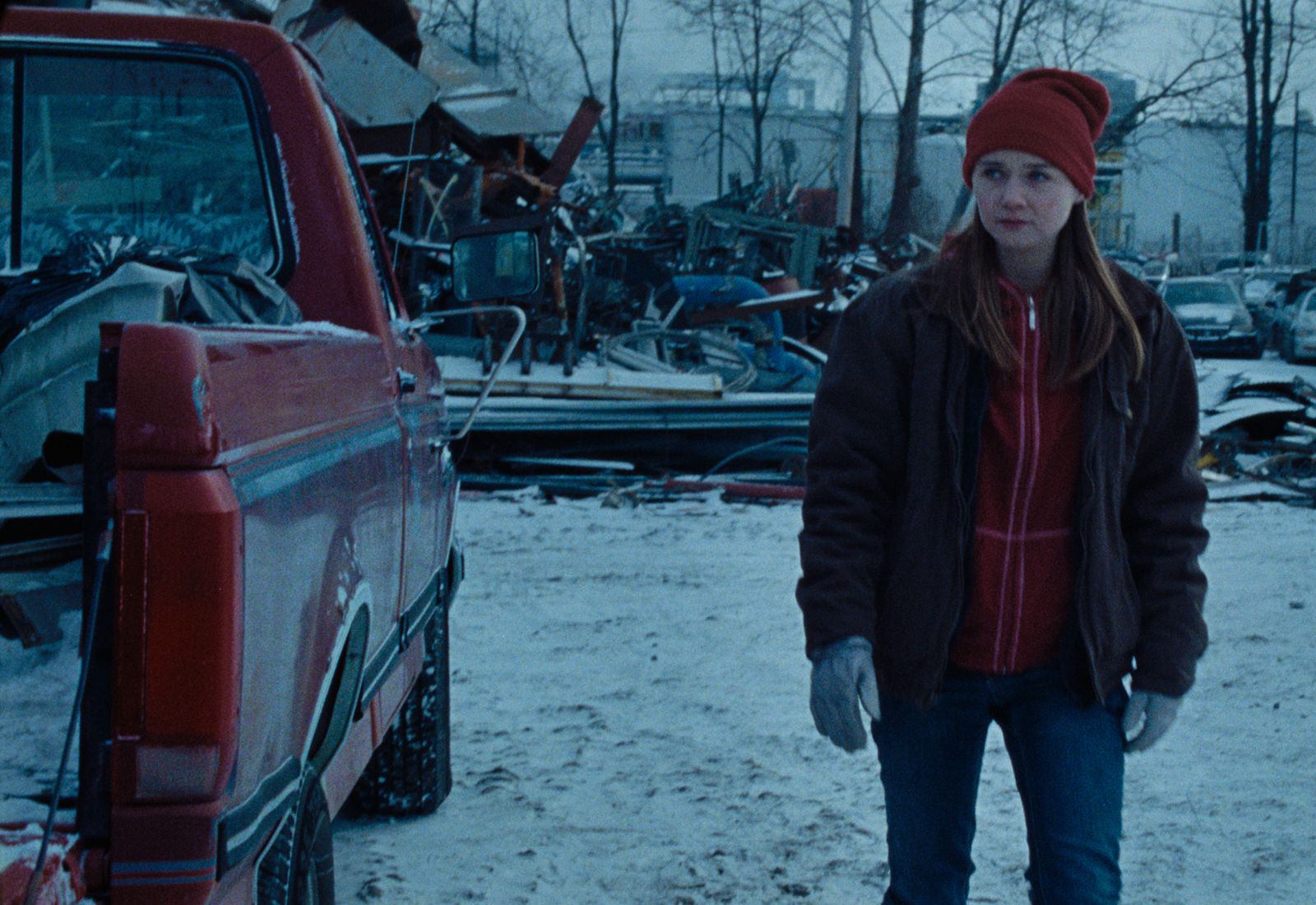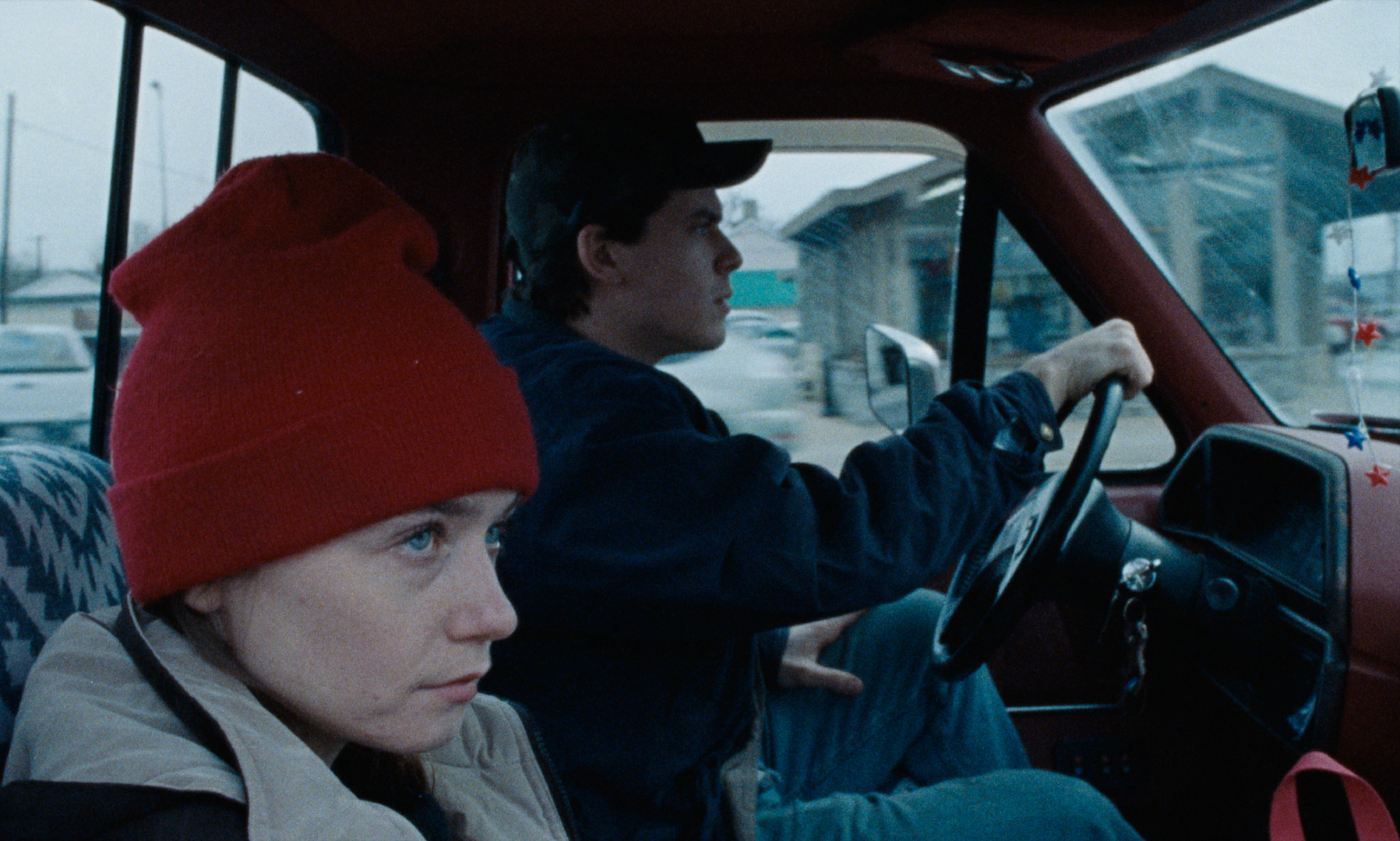
There's nothing left for Ruth Avery (Jessica Barden) in her hometown of Jackson, Ohio -- except everything she's ever known. Ruth's potential future and the pull of her past create the drama's central tension in writer-director Nicole Riegel's debut feature Holler. Although Riegel's film, a favorite at last year's Toronto and South by Southwest film festivals, tells a coming-of-age journey that is relatively familiar, Riegel captures the story's hardscrabble setting and the characters' crushing poverty with admirable clarity and sensitivity.
Ruth is introduced to the audience as someone running from an unknown pursuer, holding two trash bags full of recyclable cans. She and her brother Blaze (Gus Halper) scrape together extra cash by collecting cans and other bits of metal and selling them to a local scrapyard. Their mother Rhonda (Pamela Adlon) is in jail for drug possession, and at home, eviction notices pile up and the water has been turned off. Blaze dropped out of school to take care of Ruth, but she has a better prospect on the horizon. She does a neighbor's homework for money and even got into college after Blaze sent in her application without her knowledge.
"We're not college people," Rhonda tells Ruth, and even her teacher discourages her from pursuing higher education and, instead, tries to steer her toward a local IT certification program. It's not just poverty and prejudice keeping Ruth from going to college; however, it's the ostensibly well-meaning people in her life. That also includes Hark (Austin Amelio), who runs the scrap yard and hires Ruth and Blaze after being impressed with their hustle. He's a self-made man who never went to college. He's proud of his quasi-legal operation and he scoffs at Ruth's larger ambitions.

Working for Hark is dangerous, and not just because it involves heavy machinery. By day, the yard processes and sells scrap, some of it obtained legitimately. By night, Hark and his crew break into abandoned buildings to strip them for valuable metals, and Ruth and Blaze go along on these raids, risking arrest or worse for the chance to make extra money.
With its rural setting and tough teen-girl protagonist, Holler sometimes resembles Winter's Bone. However, Riegel mostly downplays the crime elements -- aside from one harrowing, violent encounter with another scrap crew. Hark talks a big game, but, as Ruth says, he's ultimately a coward and his threats don't amount to much. He's just another obstacle for Ruth to confront and overcome, representing a tempting path that would otherwise keep her stuck in Ohio. There's no looming crime syndicate or descent into violence, just a small-time crook taking advantage of the people who work for him.
Riegel keeps the story refreshingly small-scale, avoiding the melodramatic pitfalls of similar indie dramas. Hark briefly makes a pass at Ruth, but there's no big romance, nor the menace of sexual assault. Ruth's problems are serious, but she handles them methodically and without fanfare -- just making it from one day to the next. It's easy to root for her to escape the cycle of poverty in Ohio, but Riegel never makes that seem like a guarantee.

Life in Jackson is tough, but it's not always grim, and Riegel makes sure to include moments of levity and camaraderie, from the scrap-crew relaxing at the roller rink (which looks like it was frozen in time at some point in the 1980s) to Ruth and Blaze visiting the factory where Rhonda used to work. That factory is the hub of the town, but like so many in the area, it's on the verge of shutting down, and it doesn't provide the economic stability that it used to for their town. There are a couple of background snippets of Donald Trump's speeches about bringing jobs back to Ohio, but Riegel isn't focused on making political points. She's just depicting the reality of life for people in these forgotten towns.
To depict that reality, Riegel shoots on 16mm film, which immediately makes Holler stand out from the typical digitally shot indie feature. Although Holler is set in the present, the use of 16mm film gives it a throwback quality that recalls gritty working-class dramas of the 1970s. That choice is complemented by Gene Beck's almost stately orchestral score, which only gives way to the more expected indie rock soundtrack at the very end of the movie.
Barden, still best known for playing a much more intense character on Netflix’s The End of the F***ing World, gives Ruth a quiet, almost self-effacing manner, while still projecting intelligence and determination. Veteran character actor Becky Ann Baker is a calming presence as a friend of Rhonda's who looks after Ruth and Blaze, and Adlon gets in a few funny asides as the loudmouthed Rhonda. All of the performances feel as genuine and true as the locations and the visuals, which is a testament to Riegel's deep understanding of the area where she grew up. She eventually made it out, and that offers hope that Ruth might too.
Starring Jessica Barden, Gus Halper, Austin Amelio, Becky Ann Baker and Pamela Adlon, Holler opens Friday, June 11 in select theaters and on VOD.
0 Comments